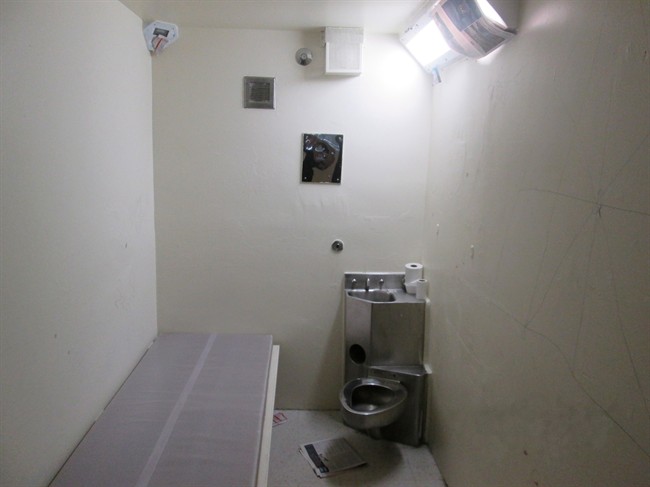TORONTO — Faced with the prospect that segregation is about to become illegal next week, the federal government has asked Canada’s top court for an urgent stay of an 18-month-old ruling that declared the practice unconstitutional because of its lack of meaningful oversight.

In a hand-delivered application on Tuesday, the Department of Justice tells the Supreme Court of Canada that it needs the stay for safety reasons.
“This motion is urgent, as administrative segregation is will no longer be available after June 17, 2019, regardless of the safety and security of inmates administratively segregated, other inmates or corrections staff in federal penitentiaries,” the government says. “If the extension is not granted … the safety and security interest of inmates and staff in penitentiaries will be in jeopardy.”
WATCH: Judge rules solitary confinement for mentally ill inmates violates charter (March 26)

Administrative segregation allows correctional authorities to place inmates deemed a threat either to themselves or others in solitary confinement. However, Superior Court Justice Frank Marrocco in December 2017 struck down parts of the Corrections and Conditional Release Act that allowed the practice.
Marrocco, who was critical of the lack of supervision, put his ruling on hold for one year to give the government time to remedy the situation. The government did not appeal the ruling but asked Ontario’s top court for more time to implement it.
In a scathing assessment of the government’s lack of action, the Ontario Court of Appeal agreed to stay Marrocco’s ruling in December. The Appeal Court then reluctantly did so again in April, saying there would be no further extensions.
It also imposed a condition for the stay: Correctional Service Canada had to implement an independent review after a prisoner had spent five days in isolation. Ottawa now says it has been unable to comply with that order and the government is seeking leave to appeal the issue.

Get daily National news
WATCH: BC Civil Liberties Association on solitary confinement ruling (Jan. 7)

The Canadian Civil Liberties Association, which pressed the fight against segregation, expressed dismay at the government’s tactics.
READ MORE: Canada’s new solitary confinement bill makes it easier to put inmates in isolation, senator says
“Canada has had a year and a half to address its constitutionally defective statute,” said association lawyer Michael Rosenberg. “It has failed to do so. This meritless application for leave to appeal is an outrageous attempt to prolong the suffering of prisoners in solitary confinement and perpetuate an abhorrent practice that has been thoroughly denounced by our courts.”
The government has long maintained it was addressing the problems with administrative segregation through Bill C-83, which senators were debating on Wednesday. Asked what would happen when the practice becomes illegal next week, the government had little to say.
“The minister has nothing further to add at this point,” a spokesman for Public Safety Minister Ralph Goodale told The Canadian Press on Tuesday. “The government continues to review the implications of the rulings and is advancing Bill C-83 through the Parliamentary process.”
WATCH: Court rules against indefinite solitary confinement (Jan. 17, 2018)

Critics have questioned whether the legislation will remedy the constitutional problems the courts have identified.
A spokeswoman for Correctional Service Canada said on Tuesday that prison authorities were “still examining the specifics of the ruling” and noted Bill C-83 was before Parliament but offered no details of what might happen next week.
“CSC will ensure that measures are in place to protect the safety of our staff, offenders and our institutions while being compliant with the law,” the spokeswoman said in an email.
The urgent request to the Supreme Court is similar to one it made in April, when, at the last minute, it sought a stay of another ruling from the Court of Appeal that declared more than 15 days in isolation to be cruel and unusual punishment and therefore unconstitutional. The Supreme Court granted that one.
It’s not immediately clear when the high court will consider the new stay motion.







Comments